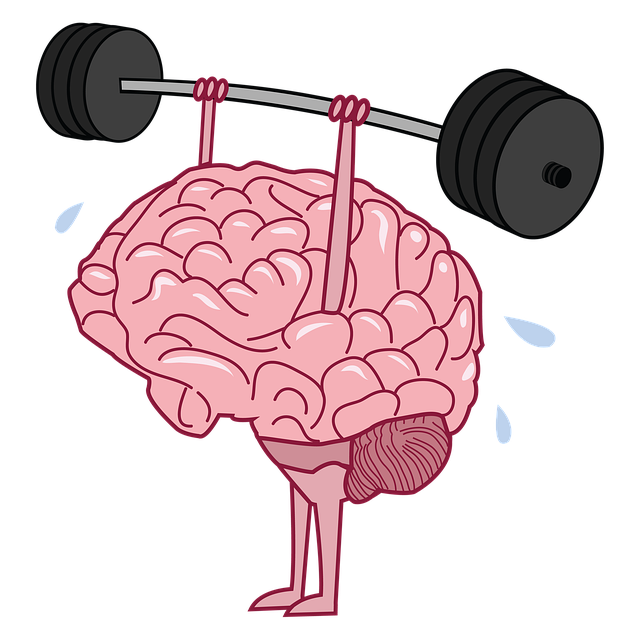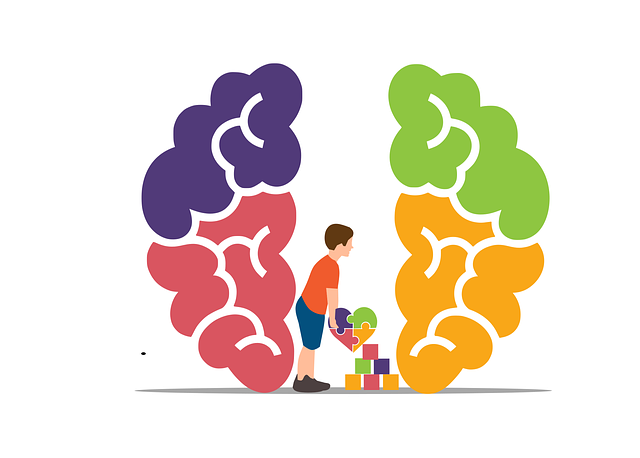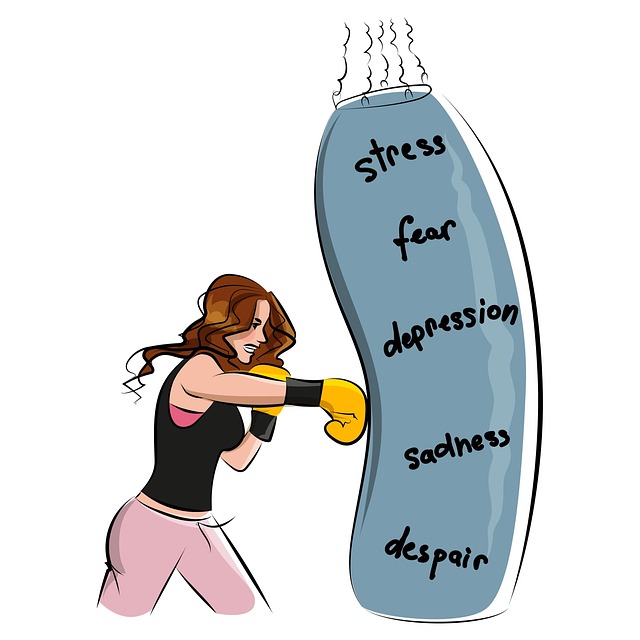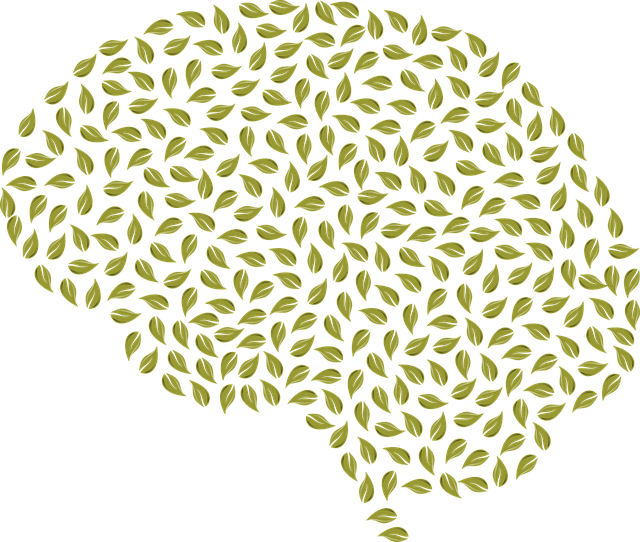Young adults with chronic illnesses face significant mental health challenges, including anxiety and depression. Effective therapy for Young Adults Chronic Illness addresses these issues through emotional intelligence development, trauma support, coping mechanism teaching, and stress management techniques. Journaling emerges as a powerful tool in this context, offering self-care, emotional processing, and mental wellness tracking. By setting aside dedicated time for journaling, individuals cultivate resilience, manage long-term health conditions, and inspire community outreach programs that challenge stigma. Creative expression, mindfulness techniques, and regular reflection enhance the effectiveness of therapy for Young Adults Chronic Illness.
“Unwind your mind and embark on a journey of self-care with mental wellness journaling. This therapeutic practice is a game-changer for young adults navigating chronic illnesses, offering a safe space to process emotions and gain insights. In this article, we explore the profound impact of journaling as a personalized therapy.
From understanding the unique challenges faced by this demographic to uncovering the benefits of creative expression and mindfulness, we guide you through establishing a routine that fosters mental resilience. Discover how tracking progress can empower individuals in their healing journey.”
- Understanding Mental Wellness and Its Impact on Young Adults with Chronic Illnesses
- The Power of Journaling as a Therapeutic Tool
- Creating a Personalized Journaling Routine
- Incorporating Creative Expression and Mindfulness Techniques
- Tracking Progress and Celebrating Achievements
Understanding Mental Wellness and Its Impact on Young Adults with Chronic Illnesses

Mental wellness is a vital aspect of overall health, especially for young adults grappling with chronic illnesses. This demographic often faces unique challenges that can significantly impact their emotional well-being. Chronic illness can lead to long-term physical and mental strain, causing anxiety, depression, and reduced quality of life. Young adults may struggle to manage the additional stress of balancing their medical needs with daily responsibilities and aspirations for the future.
Understanding mental wellness involves recognizing the intricate relationship between physical health and emotional resilience. Promoting emotional intelligence and trauma support services can be transformative in therapy for young adults chronic illness. Developing coping mechanisms, learning stress management techniques, and accessing anxiety relief strategies are essential tools to navigate these challenges. These approaches foster self-care practices that empower individuals to take control of their mental wellness journey alongside their medical treatment.
The Power of Journaling as a Therapeutic Tool

Journaling has emerged as a powerful therapeutic tool for young adults navigating mental wellness challenges, especially those living with chronic illnesses. By putting pens to paper, individuals can engage in an act that fosters self-care practices and promotes emotional processing. This simple yet profound activity allows for introspection, encouraging folks to reflect on their thoughts and feelings. It serves as a safe space where one can express themselves without judgment, making it particularly beneficial for those who might struggle with articulating their experiences verbally.
The practice of mental wellness journaling is not just an individual endeavor; it can also contribute to broader mental health policy analysis and advocacy. By documenting journeys, young adults can gain valuable insights into their own resilience and the impact of their chronic illnesses. This self-documentation may inspire community outreach program implementations, where individuals share their stories to raise awareness, challenge stigma, and advocate for improved access to mental health resources tailored to the unique needs of young adults with chronic conditions.
Creating a Personalized Journaling Routine

Developing a personalized journaling routine can be a powerful tool for young adults navigating mental health challenges, especially those with chronic illnesses. It allows individuals to create a safe and intimate space to explore their thoughts and emotions. By setting aside dedicated time each day or week, you establish a ritual that becomes an essential part of your self-care practice. This consistency facilitates the development of resilience and coping skills, which are crucial in managing long-term health conditions.
Journaling offers a private arena where one can openly express feelings, document experiences, and track progress. It encourages self-reflection and helps individuals gain insights into their emotional patterns. For young adults dealing with chronic illnesses, this process can foster public awareness campaigns that promote understanding and support, enabling them to share their journeys and inspire others while building a sense of community.
Incorporating Creative Expression and Mindfulness Techniques

Incorporating creative expression and mindfulness techniques into your mental wellness journaling practice can be a powerful tool for young adults navigating chronic illnesses or trauma. Art, music, poetry, and writing offer unique avenues to explore emotions and experiences. For instance, drawing or painting can help visualize abstract feelings, while writing freely allows you to pour out thoughts, fears, and hopes—a therapeutic process known as expressive writing. These creative outlets encourage self-reflection, fostering a deeper connection with your inner self.
Mindfulness techniques, such as meditation and deep breathing exercises, can enhance the journaling experience by promoting present-moment awareness. This is especially beneficial for managing mood swings or anxiety related to chronic conditions. Incorporating these practices into your routine helps to calm the mind, reducing stress levels and improving focus. Combining creative expression with mindfulness not only enriches the journaling process but also provides valuable tools for self-care and emotional regulation—essential aspects of therapy for young adults dealing with chronic illnesses or seeking trauma support services.
Tracking Progress and Celebrating Achievements

As you progress through your mental wellness journey, journaling becomes a powerful tool for tracking your achievements and understanding your growth. Regularly reviewing your entries allows you to identify patterns in your mood, triggers for specific emotions, and the effectiveness of your self-care practices. By documenting your experiences, you can celebrate small victories and acknowledge your resilience—a valuable aspect of therapy for young adults with chronic illnesses.
Reflecting on your journey enables you to refine your stress reduction methods and mood management strategies. Recognizing what works best for you empowers you to continue building a healthy coping mechanism, fostering a sense of control over your mental wellness. This process is crucial in managing symptoms and promoting overall well-being, especially when navigating the challenges associated with chronic illnesses.
Mental wellness journaling can serve as an effective therapy for young adults with chronic illnesses, offering a personalized way to navigate their mental health journeys. By combining reflective writing with creative expression and mindfulness techniques, individuals can gain deeper insights into their experiences and develop coping strategies tailored to their unique needs. Through consistent practice, this simple yet powerful tool enables better self-awareness, fosters resilience, and promotes overall well-being, ultimately enhancing the quality of life for those managing long-term health conditions.














